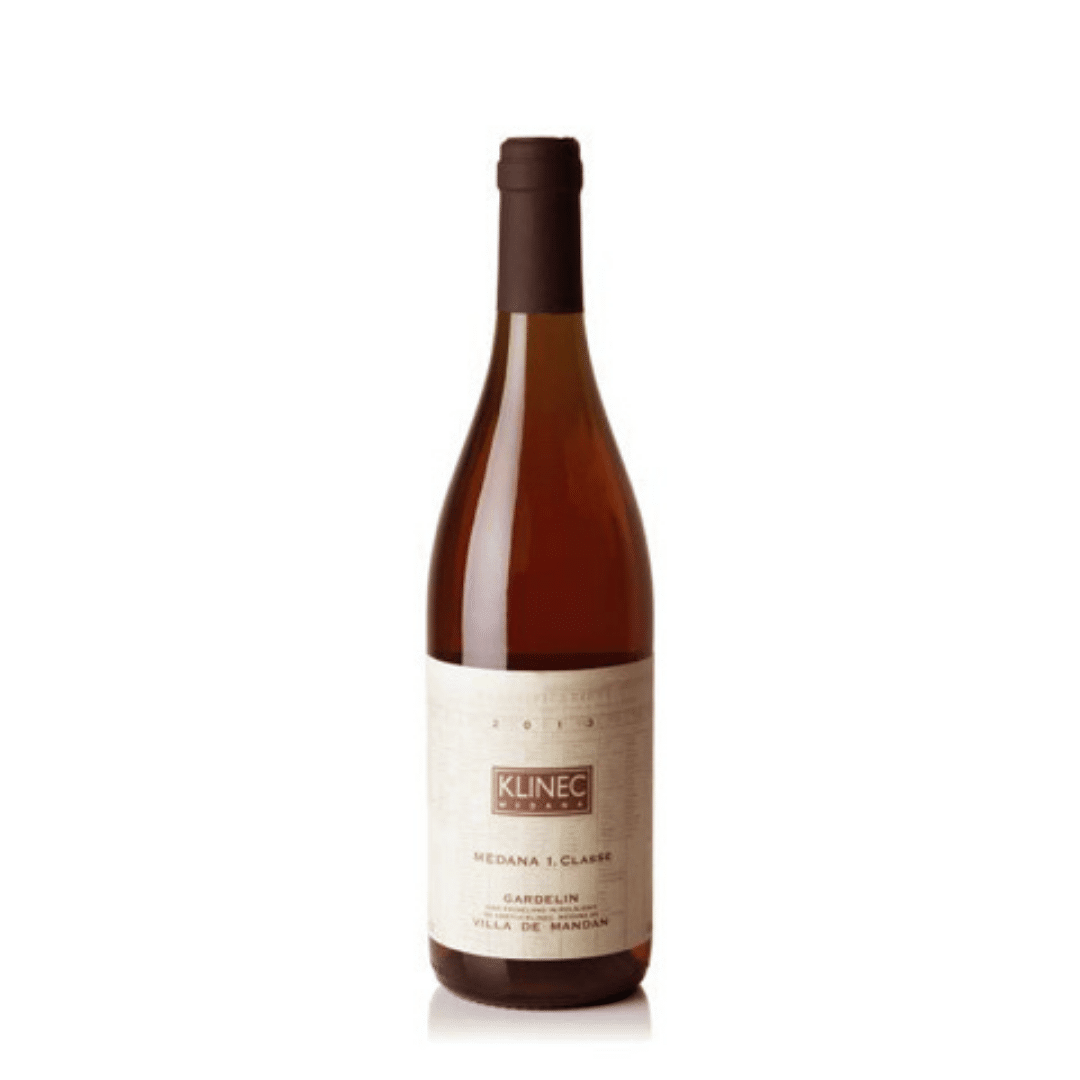Klinec Gardelin 2018
42,00 €
| Year | 2018 |
|---|---|
| Format | 75 Cl |
| Origin | Italia |
| Typology | Macerated Wine, White Wine |
| Grape Variety | Pinot Grigio |
Out of stock
Manufacturer: Klinec
Gardelin
️ Medana, Slovenia
Klinec
Pinot Grigio
2018
️ 13%
Spontaneous fermentation and maceration in cement for about a week, then 3 years of aging in acacia barrels
White flowers and withered yellow flowers, notes of acacia honey and exotic fruit jam, lots of minerality and smoky puffs, a spicy touch at the end
Full and satisfying sip, fresh and salty, aromatic and persistent
Serving temperature 12°-14°
White meat
Very persistent
*This bottle can be purchased without additional costs only in combination with other bottles from the same selection. Otherwise, the shipping costs expected for each individual country will be added, until the free port is reached.
Medana (Slovenia)
Medana is located in the center of the Slovenian Collio in a privileged position: almost 3000 hours of sunshine a year, less than 30 km away from the sea, and the Julian Alps just to the north.
The soil is predominantly Ponca, a friable soil that gives the wines an unmistakable minerality and which rests on layers of marl and sandstone formed since the Mesozoic.
The Klinec family’s viticulture traditions date back to the end of the Great War, now the company is run by Aleks and Simona Klinec.
They carry out the activity with absolute respect for the territory. In the vineyard, herbal extracts, acid clay, silicates and limited quantities of copper and sulfur are used.
Biodiversity is promoted in all vineyards. In the cellar, the grapes are destemmed and left to ferment in barrels, with maceration for 5 to 30 days. After maceration, the grapes are pressed and left to decant, so as to allow the alcoholic and malolactic fermentation to be completed directly in acacia, cherry, oak or mulberry barrels, where the wine is generally left for at least two or three years .
Subsequently, the wine is transferred to steel barrels where it is left to decant: the addition of minimal quantities of sulfur dioxide occurs in this phase, to favor its integration with wine, which is bottled after several months of rest without filtration nor adding anything else.





